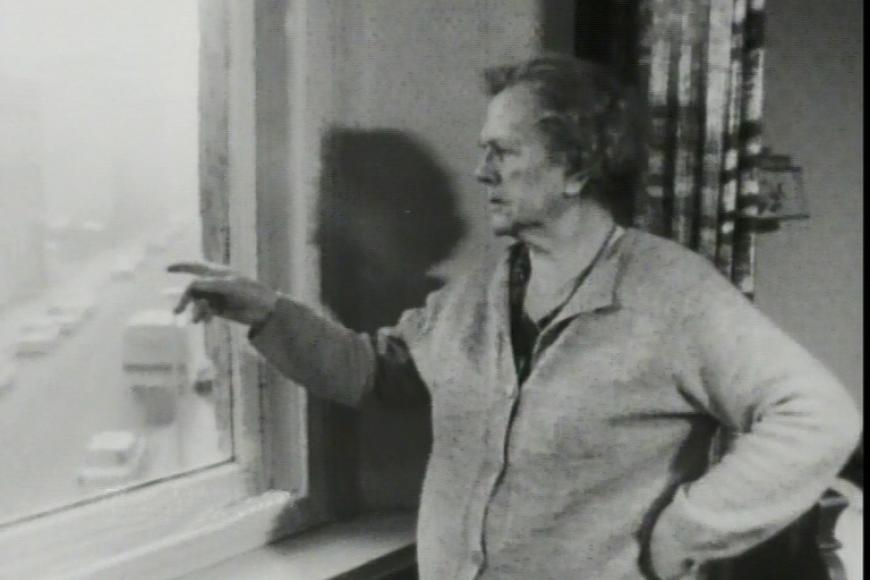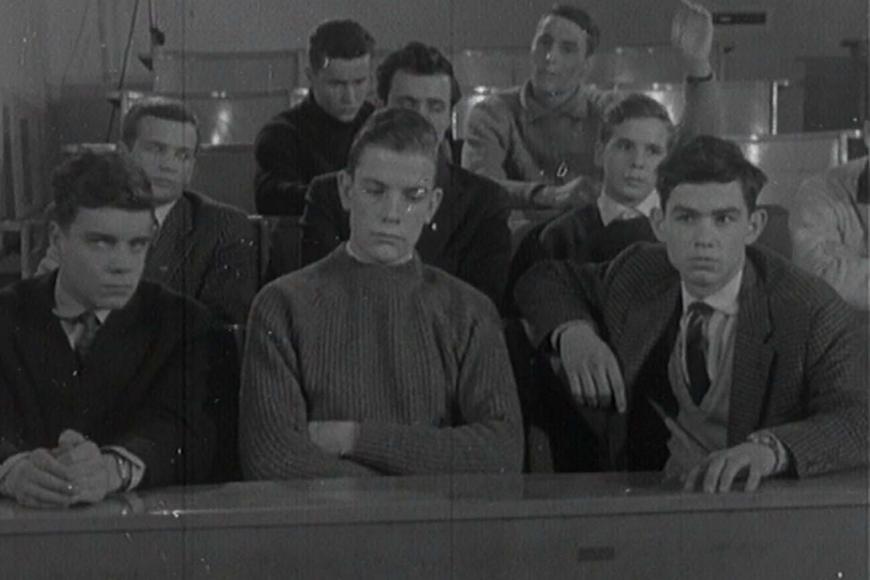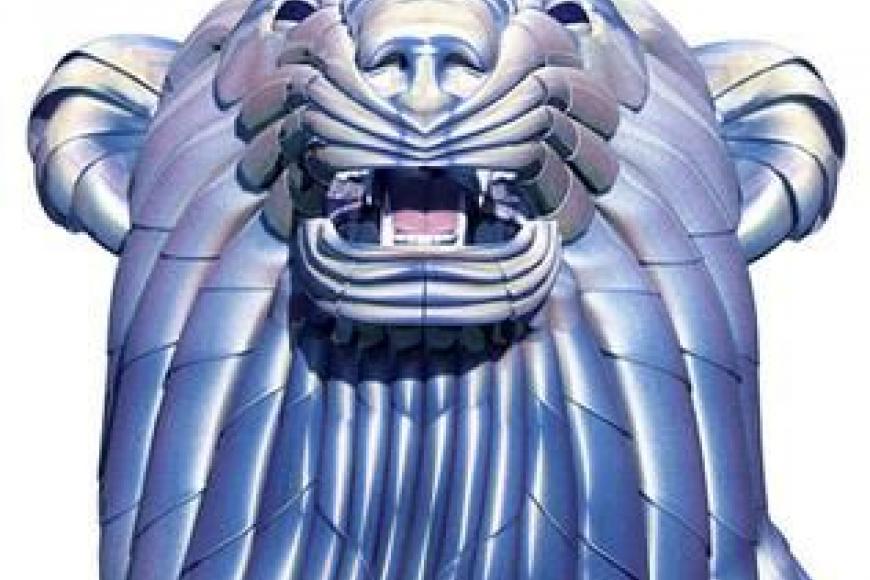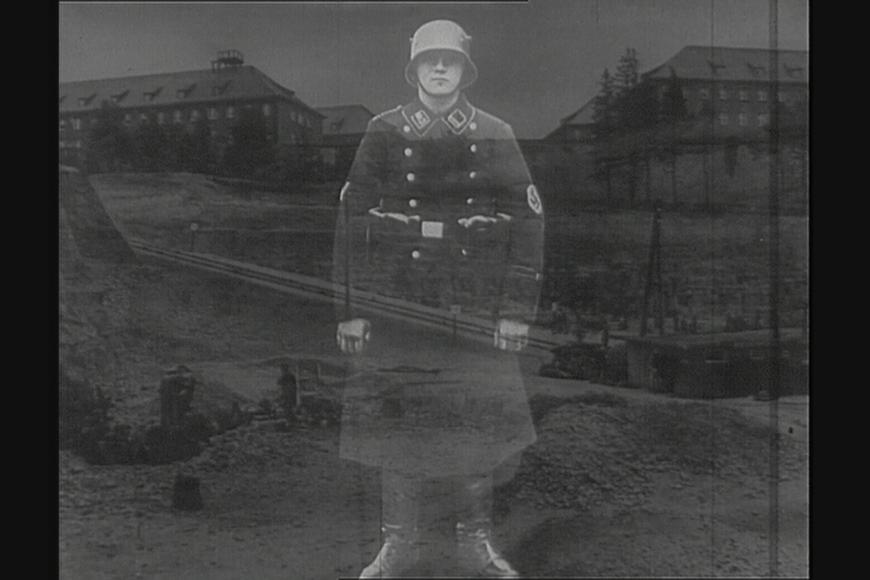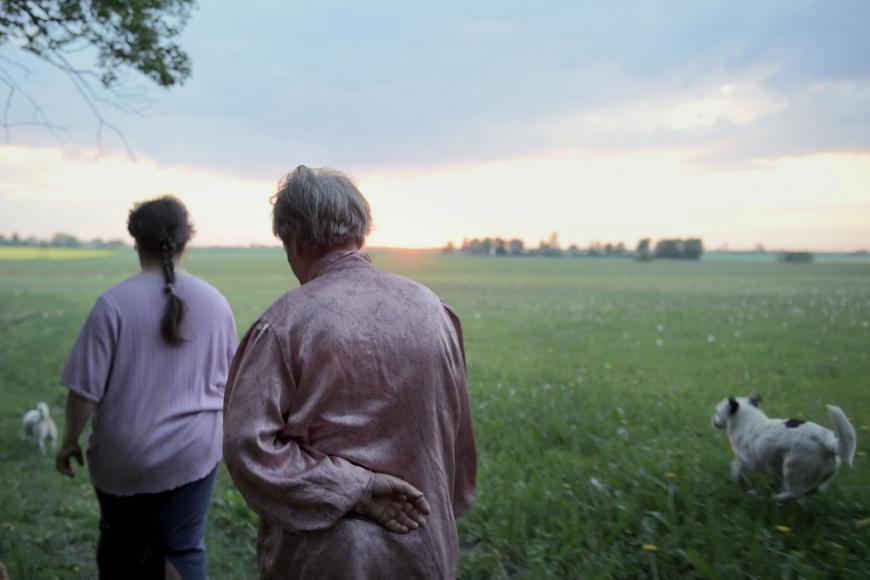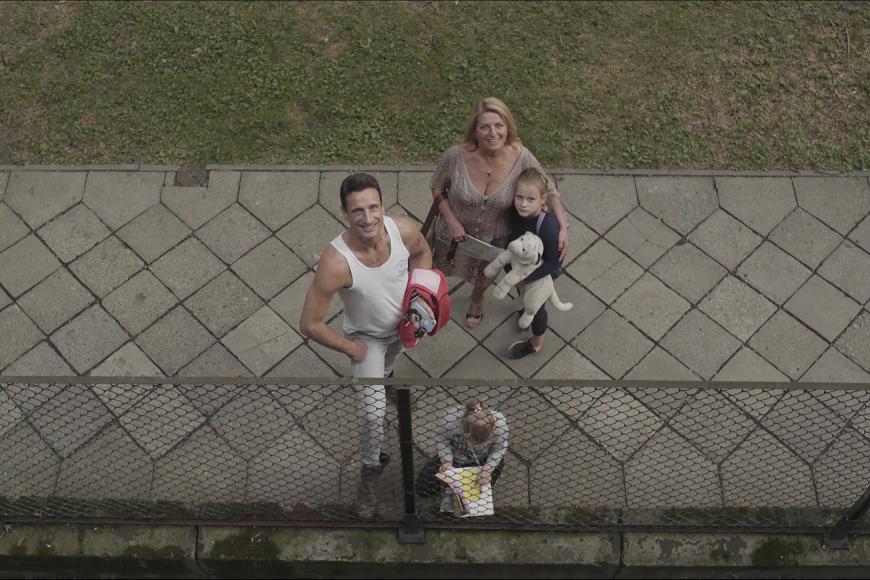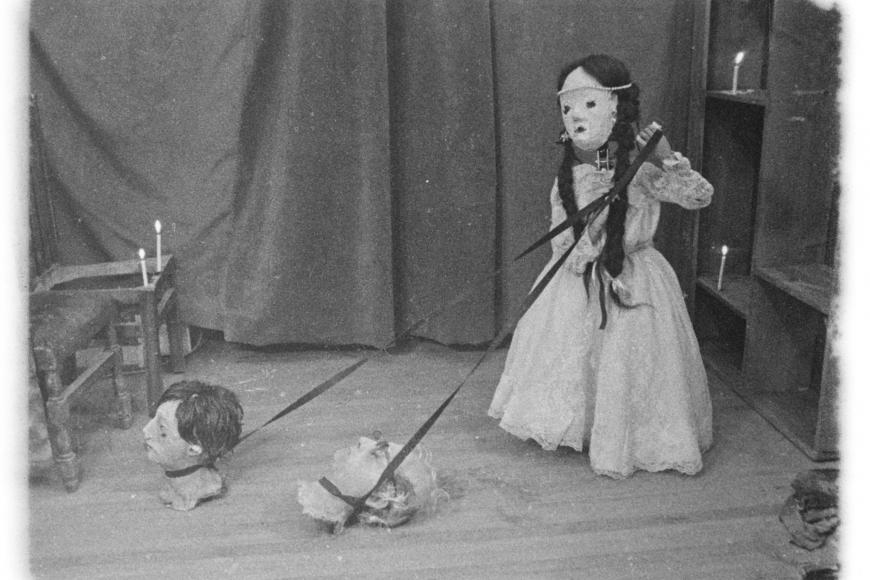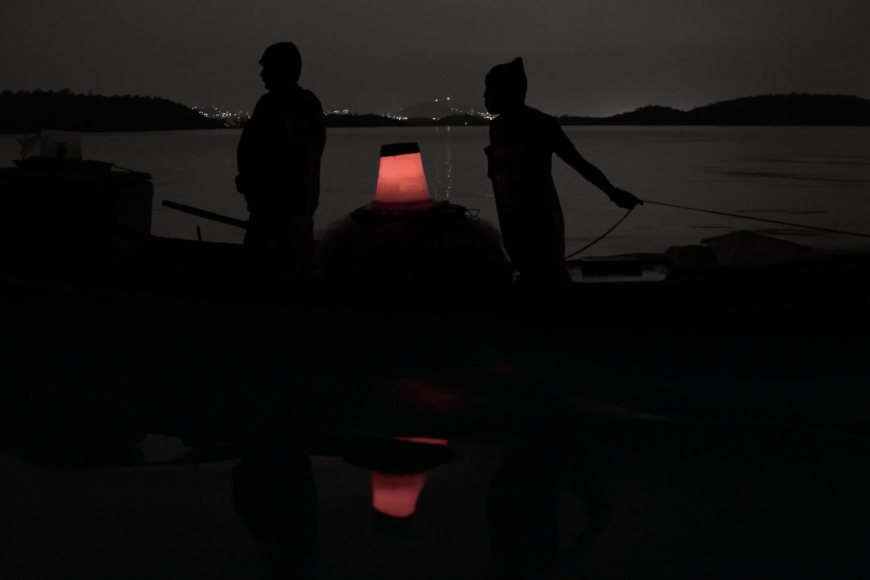
A Bay
The Baía de Guanabara is not just any bay: the metropolitan area of Rio de Janeiro has sprawled around it. Its waste water threatens the rich ecosystem, planes roar along the approach corridors above. These filmic explorations on the margins of the megacity portray various environments that are all connected to the bay in a specific way. The people here are micro-wage earners making a modest living.

